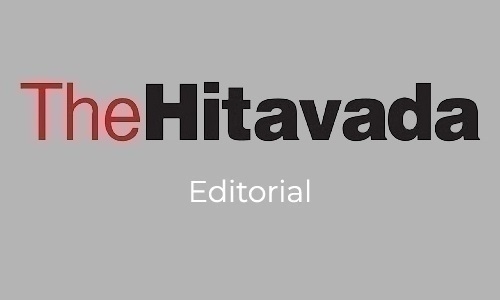baloch riposte
| Date :01-Oct-2023 |

THE twin blasts in Pakistan -- one in Balochistan and another at Hangu in Khyber Pakhtunkhwa -- that killed at least 58 people come as a grim reminder of how Pakistan has failed over the years into integrating various communities and weaving one democratic nation.
The country, with foundation in religious radicalism, was destined to reach this stage. As the new country was carved out of India by way of a painful Partition, political leadership of all ilk in Pakistan treaded the path of exerting authority over power machine. It used force to annex Balochistan, treated the Bengali-speaking people in erstwhile East Pakistan as secondary citizens, kept people in tribal areas deprived of development, and spent much of energy and resources on keeping the power into the hands of a few.
This was bound to lead Pakistan on to the path of self-harm.
The power-hungry approach of politicians left little scope for Pakistan to evolve as a functional democracy. Politicians groomed Mullah-Military nexus, which became so potent a force that it started dictating terms. Dictatorships added to the woes of Pakistan. Greed for self-gains resulted in politicians placing own financial interest above national interest. Corruption aggravated the situation, and Pakistan became a client State.
Forcefully annexed Balochistan continued to be restive, with Baloch people continuing fiercely with their struggle for independence from Pakistan. Pashtuns also continued with their struggle in Khyber Pakhtunkhwa region. Radical forces grew under the patronage of military. Lack of development bred hordes of available-for-money mercenaries. The power-drunk Pakistani establishments kept using force on own people, which proved counter-productive. Fed up with atrocities, Bengalis asserted themselves and East Pakistan got liberated into Bangladesh, giving confidence to other oppressed communities in Pakistan.
The trouble in Balochistan and Khyber Pakhtunkhwa reflects this situation. Forced disappearances of Baloch and Pashtun activists from these two regions have reached the United Nations Human Rights Council. Use of force has been a dark hallmark of Pakistan’s policy in these regions two as well as Gilgit-Baltistan area.
Pakistan has failed miserably in responding to the situation with maturity. What else can expect from a country founded on the religious premise? The focus of Pakistan’s policy has been on hating India more than loving its own citizens. It vitiated the hearts and minds of people with religious hatred against India and sponsored terrorist activities. While not treating Baloch people as its own, Pakistan blamed India for trouble in Balochistan.
The recent happenings and attacks on Pakistan Army by Baloch liberation forces expose how much of brutality and injustice Pakistan has heaped on Balochistan for years. This proves that Pakistan is to be blamed for the restiveness in Balochistan.
Clearly, forced accession of Balochistan is not working for Pakistan. Decentralisation of power, empowerment of people, restoration of true democracy, and focussing on own development more than disturbing India may hold keys to peace in Pakistan. But, is a radicalised Pakistan prepared to accept this?
Well, that’s a million dollar question.